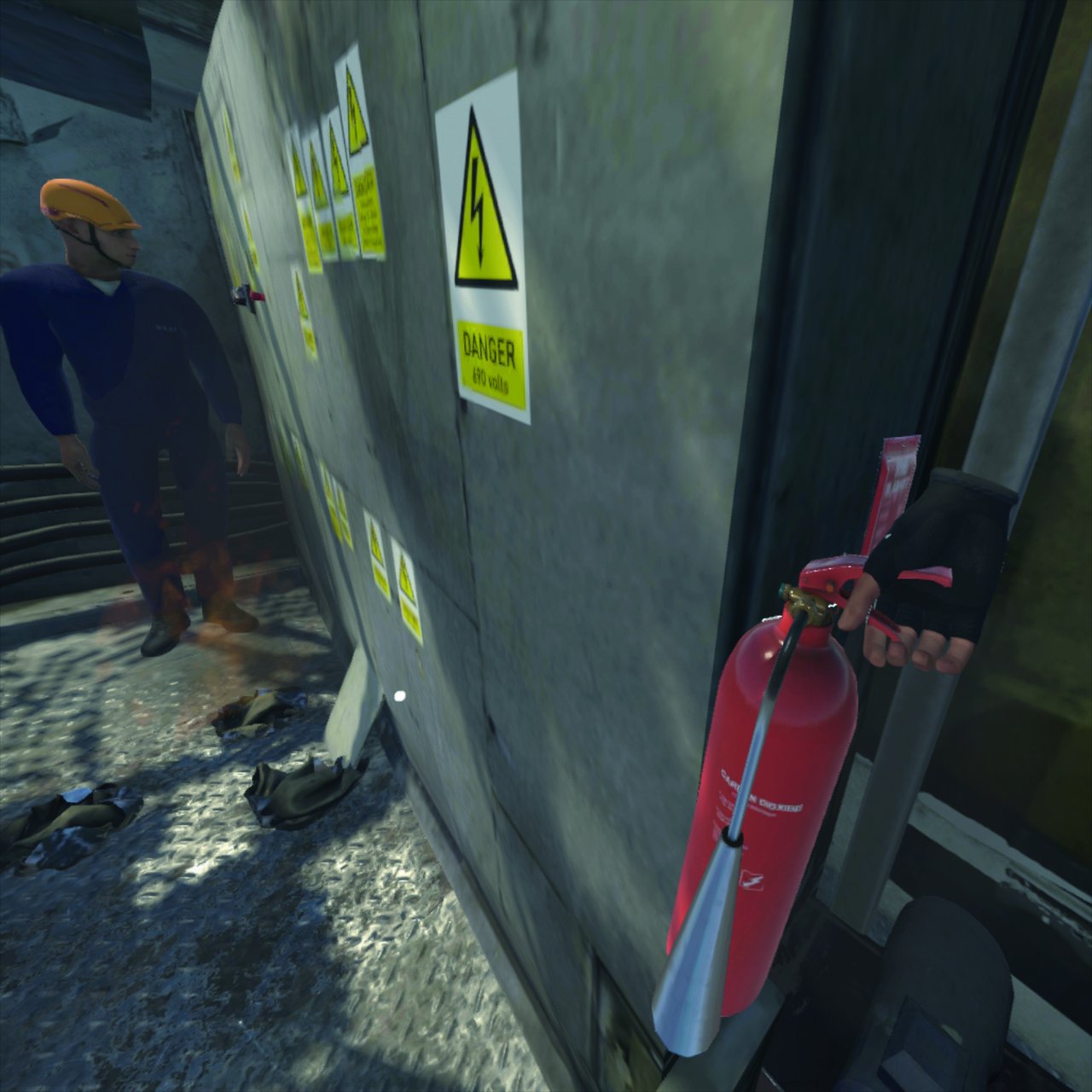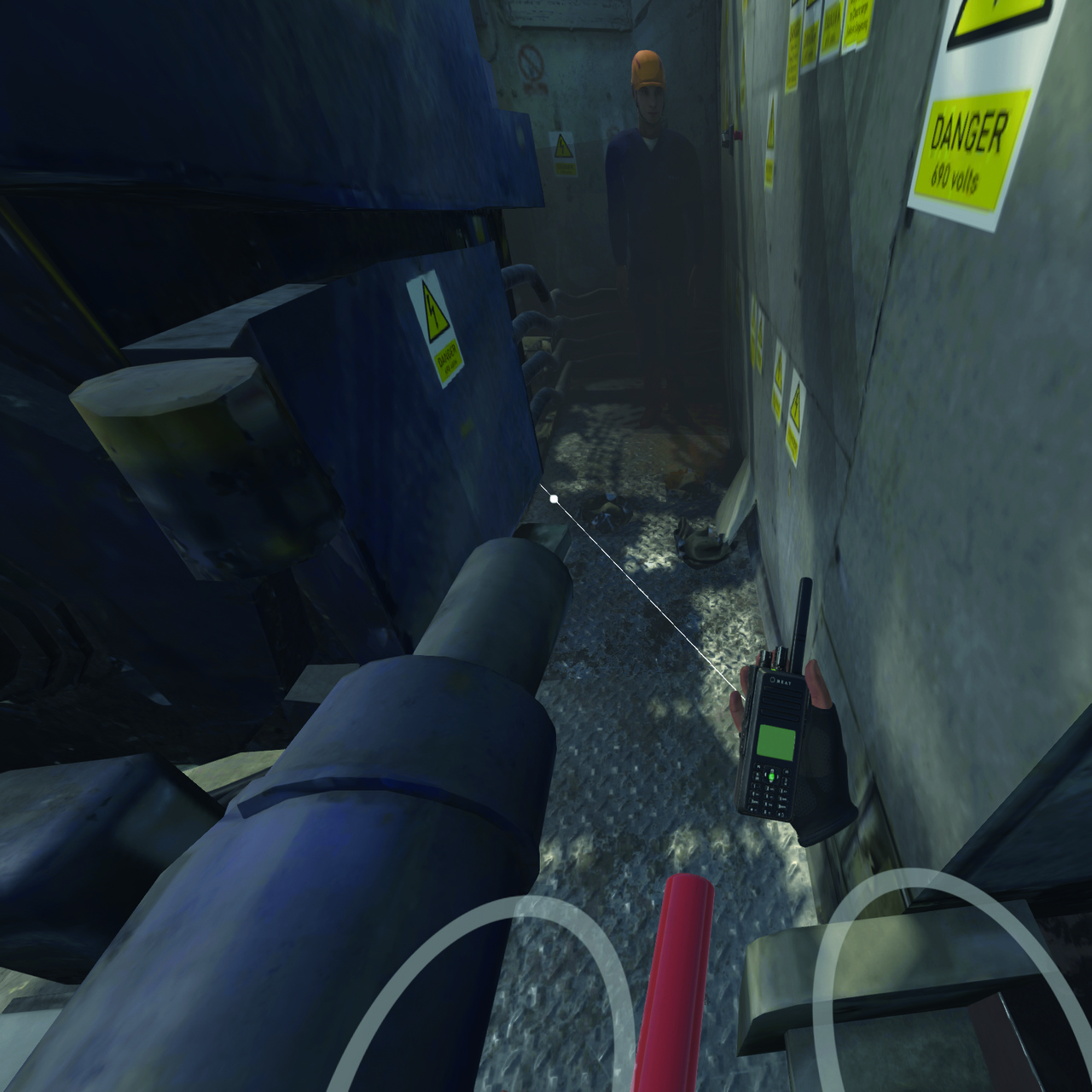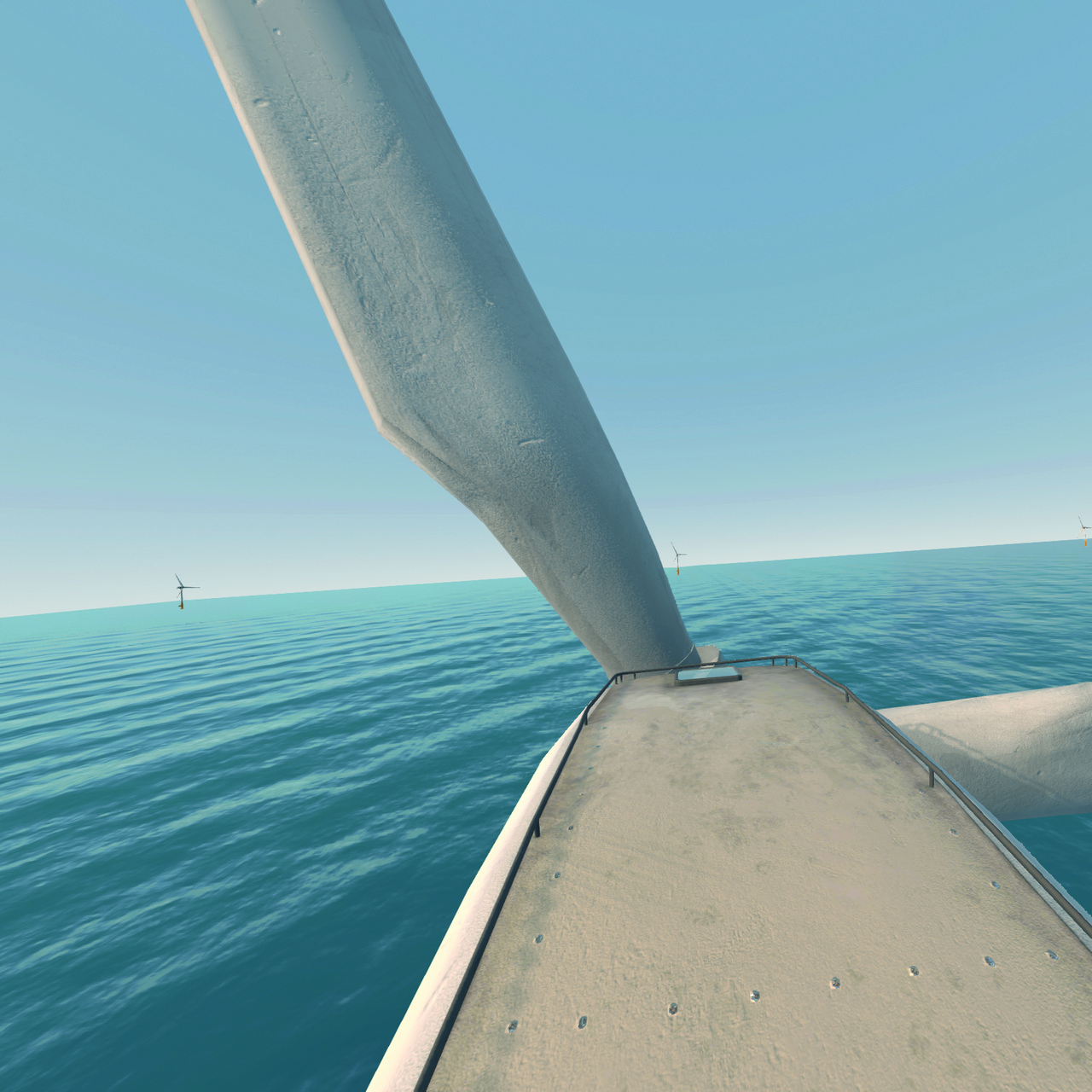
Virtual reality (VR) for data-driven simulation training, improving performance in high hazard environments.
Business profile
Well established start-up with strong reputation in defence sector.
Company was growing, attracting business and investment.
No prior experience in Offshore Wind sector.
Support recieved
Grant Funding
Solutions for the offshore wind industry
VR training tailored specifically to the Offshore Wind industry.
Data capture and insights allow trainers to assess progress and improve outcomes.
A pay-as-you-go model, removing the cost barrier of developing bespoke VR training.
A closer look at VRAI
172,000 more people will need to be trained to Global Wind Organisation (GWO) standards to meet the market demand over the next five years. VRAI’s VR training creates immersive training environments which accurately replicate the reality of working offshore.
Technicians can learn and test safety and technical skills in a controlled but realistic environment before experiencing it in reality.
VRAIʼs training can be undertaken almost anywhere using a portable headset and removing constraints of access to equipment or instructors, making it ideal for deploying standardised training on a global scale.
Impact of the support
Developed a VR fire awareness training
Attracted further investment.
Expanded staff in the North East of England by 60%.



Before
Prior to engaging with OWGP, VRAI was a well-established start-up with clients in a range of sectors including defence and aviation. Motivated to support the global transition to renewable energy, VRAI identified the Offshore Wind market as an exciting new business opportunity, recognising VR training would be ideal in this environment and was not yet widely in use.
Forming a partnership with Simon Hogg, Ørsted Professor in Renewable Energy at Durham University, and Evelyn Tehrani, Durham Energy Institute, VRAI applied to the OWGP Cross Sector Call in 2020 for grant funding. VRAIʼs goals were to use the funding to conduct a training needs analysis, develop relationships with subject matter experts, and create a VR training module prototype aligned to one of the GWO training standards.
During
Following a successful bid for funding, VRAI conducted an extensive analysis of the industryʼs training needs through discussions with training bodies, original equipment manufacturers (OEMs), developers, technicians and academic groups. With subject matter expertise provided by Vestas and Port of Blyth Training Services, the company identified fire awareness training as an appropriate module to develop.
A VR training prototype was developed through an iterative process involving frequent testing and validation with potential users to gain feedback. The authenticity of the VR environment was a high priority, so VRAI worked with TEXO, which conducted a 3D scan of the Port of Blyth training nacelle to ensure it was as accurate as possible.
After
The OWGP grant enabled VRAI to develop invaluable connections within the industry and to develop a functional VR fire awareness training prototype with which to attract investment and partnerships on additional training content.
Offshore Wind is now a major component of VRAIʼs business, enabling the company to expand its staff cohort in the UK fivefold since receiving OWGP support.
Working with OWGP has been hugely successful, opening up a whole new sector for our business. The results have enabled us to secure further investment and new industry relationships to develop additional training content and applications for data capture and analytics.
We’re very excited about the opportunities ahead.

 BACK TO CASE STUDIES
BACK TO CASE STUDIES 